n December 8 - 11, 2018, the Teacher Training Class for University Electronic Information Core Courses (Phase I) was successfully held at Tsinghua University. This training class was sponsored by the Department of Electronic Engineering, Tsinghua University and undertaken by Tsinghua University Press. A total of over 140 teachers from 64 colleges and universities in the country attended it.
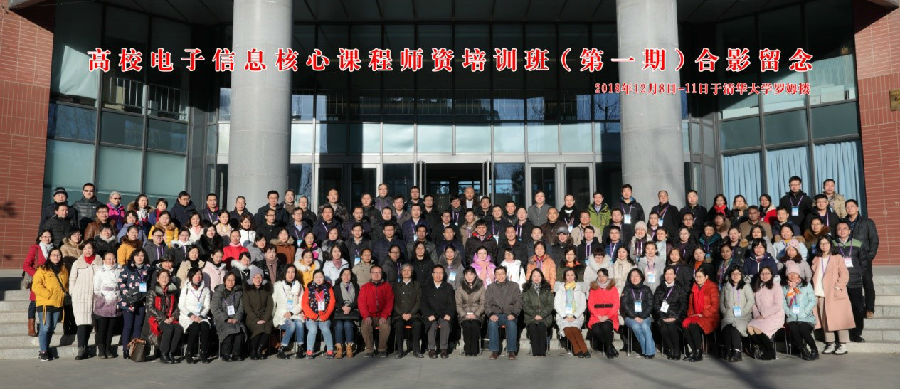
In order to solve the contradiction between the expansive knowledge and the limited educational system, the Department of Electronic Engineering, Tsinghua University has carried out a comprehensive teaching reform, sorted out the knowledge structure of electronic information science, built a new curriculum system, and launched the "Textbooks in the Core Course Series of the Department of Electronic Engineering, Tsinghua University". Based on this, the Department of Electronic Engineering, Tsinghua University and Tsinghua University Press jointly held a series of teaching reform seminars and teacher training class for core courses, aiming to build an exchange and learning platform for numerous college and university teachers to accelerate the construction of high-level undergraduate education and comprehensively improve the talent training ability.
The training class lasted for 4 days and was carried out around the core courses of electronic information, including academic reports of frontier technologies, overall introduction of core courses, course reports (the main venue), course demonstrations (parallel session), laboratory visits, laboratory course explanations and practices, and class visiting (large-class lectures, small-class teaching), as well as exchanges and discussions with teachers (course grouping) and many other contents with diversified forms and highlights.
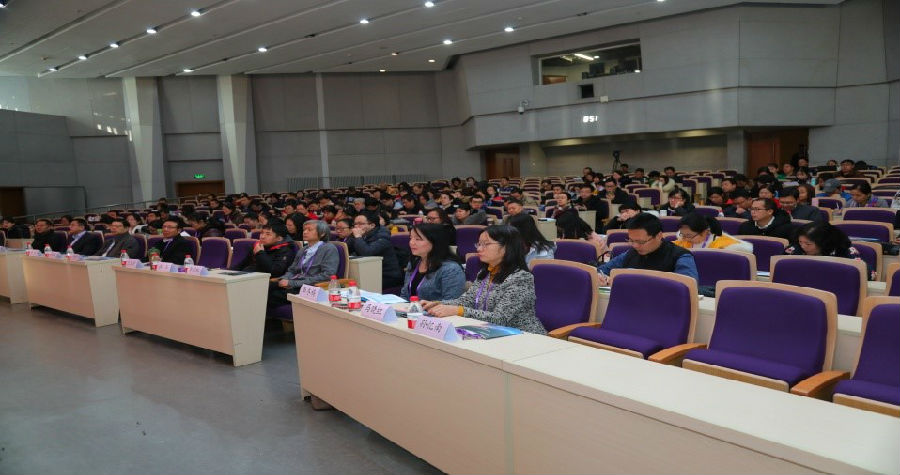
At the opening ceremony on the 8th, Professor Huang Yidong, Chair of the Department of Electronic Engineering, delivered a speech. She reviewed the ten-year history of the undergraduate teaching reform of the Department of Electronic Engineering launched by Vice President Wang Xiqin, introduced the reasons, concepts, ideas and experience of the teaching reform, and hoped that through means such as research and discussions, training and publishing to promote the core curriculum system in China and even the world. Vice President Lu Xianhe from Tsinghua University Press delivered a speech, reviewing the close cooperation between the Press and the Department of Electronic Engineering for many years, and introducing the textbook publishing and teaching service concepts of the Press.

The whole day on the 8th was the time for meeting reports, which were presided over by Associate Professor Li Dongmei, Deputy Party Committee Secretary of the Department of Electronic Engineering, and Ma Xiaohong, Director of the Teaching Experimental Center. Associate Professor Wu Ji, Deputy Chair of the Department of Electronic Engineering, made a report with the title of "Introduction to the Undergraduate Teaching Reform of the Electronic Information Discipline of Tsinghua University", making an overall introduction to the structure of the knowledge system of the electronic information discipline, the construction of core courses, the adjustment of training plans, and the implementation of international evaluations, and so on, showing the overall perspective of teaching reform. Subsequently, three academic reports were arranged. Professor Wang Shengjin, Director of the Research Center for Media Big-data Cognitive Computing, made a report on "The New Era of AI - - Opportunities and Challenges", showing the dynamics, connotations, opportunities and development of the new generation of AI, and its application in safe cities, smart cities and other fields.

Associate Professor Wang Yu, Deputy Party Committee Secretary of the Department of Electronic Engineering, made a report with the title of Neural Networks on Chip: From CMOS Accelerators to In-Memory-Computing, revealing the trend of neural network chips, including algorithms, hardware collaboration, deep learning, hardware acceleration, memory computing, and the industry-university-research combination and other hot issues. Professor Zhou Shidong made a report on "Wireless Transmission and Networks for the Next Generation Mobile Communications". Starting from the 5G vision, he introduced the possible service requirements, main key technologies, network architecture and other hot issues of the next generation mobile communications. The above academic reports aimed to guide teachers to understand major national needs and the frontiers of science and technology in the world, grasp the discipline direction and technology trends, and integrate new technologies into teaching.

After the academic report, three teaching reports were arranged. Associate Professor Li Guolin made a report on the progress of the course "Foundations of Electronic Circuits and Systems", introducing the teaching of the core course "Foundations of Electronic Circuits and Systems" from aspects such as course reform process, course system, teaching material content, course evaluation and new exploration. Associate Professor Chen Jiansheng made a report on "Exploration of Programming and Algorithm Teaching for the Major of Electronic Information", introducing the core course "Data and Algorithms" from aspects such as basic information, course overview, course construction, and teaching ideas. Associate Professor Xu Shuzheng made a report on "Circuit Experiments Under the Background of New Engineering", taking experimental courses of " Basic Experiment of Electronic Circuit and System" and "Electronic Circuit Course Design" to introduce the ideas, contents, cases and effects of the experimental teaching reform. The above teaching reports made a summary of the core contents of the training this time, warming up the follow-up training.
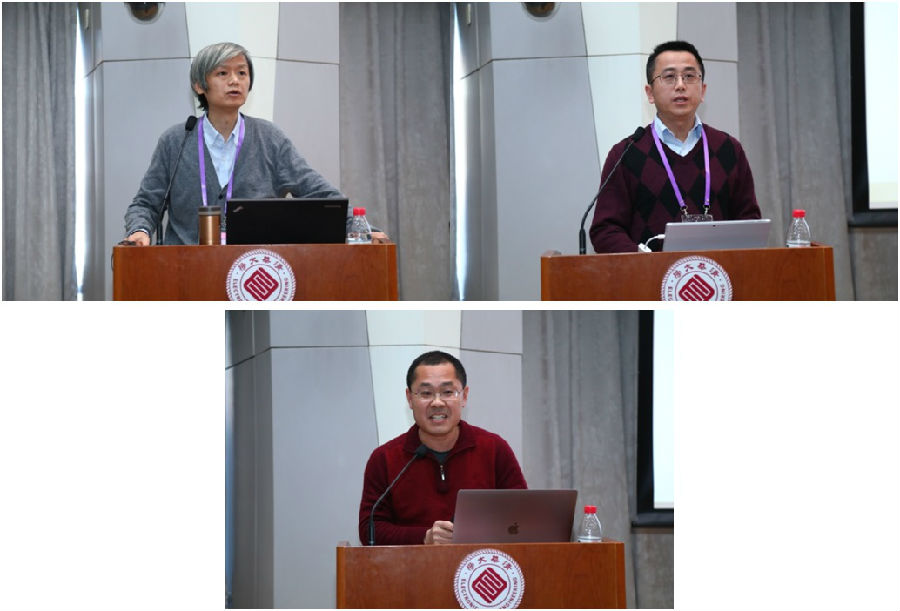
Since the 9th, the training was carried out in groups according to different courses, teachers and forms. For specific courses such as Foundations of Electronic Circuits and Systems and Data and Algorithms, matched with mature teaching materials, the content was fully expanded and meticulous explanations were given.
On the morning of the 9th, Li Guolin introduced the integration of the course content of "Foundations of Electronic Circuits and Systems". Centering on one core and four branches, it was reinterpreted through being divided into four demonstration classes: using network parameters to integrate linear circuits, classifying transistors into nonlinear resistances, using controlled sources, negative resistances, and the application of switches as concealed wiring and circuit abstraction.

At another session, Chen Jiansheng introduced the course content and teaching material structure of "Data and Algorithms". Centering on the mutual relations of data and algorithms, it was divided into two demonstration classes: among which Chen Jiansheng explained the non-numerical part, and Li Maokun explained the numerical part.

On the afternoon of the 9th, the training was launched at the undergraduate Teaching Experimental Center of the Department of Electronic Engineering. The teachers visited labs of electronic circuit, physical electronics and optoelectronic technology, electromagnetic field and microwave technology and modern communication circuit, as well as the AI open platform. After listening to the explanations of the circuit and system experiments and data and algorithms experiments, the teachers did by themselves and completed corresponding experiments by virtue of the experimental platform.
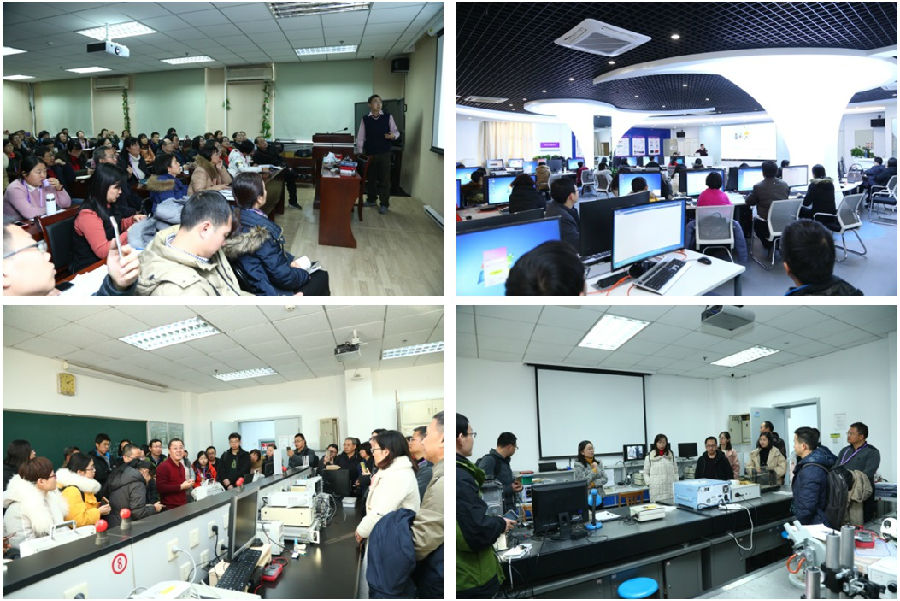
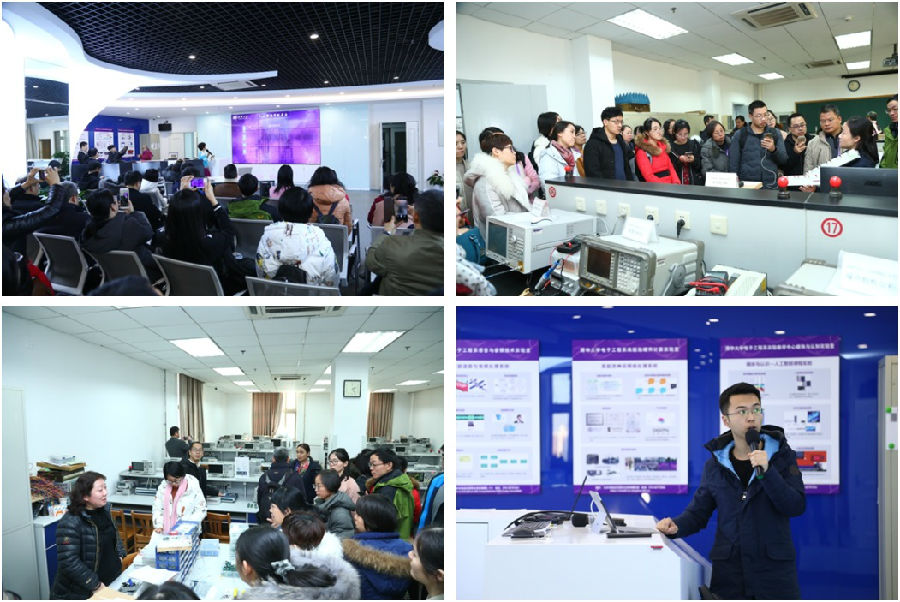
From the 10th to the 11th, the training specially set up the class visiting and participating teachers and undergraduates of the Department of Electronic Engineering listened to lectures together to experience the classroom atmosphere of Tsinghua on the spot. Li Guolin carried out large-class lectures (negative resistance pure oscillation principle) and small-class teaching (positive feedback pure oscillation principle), while Wu Ji and Chen Jiansheng carried out small-class teaching (numerical optimization problem and graph search) simultaneously. Different classrooms, different styles, and contrasting lessons gave teachers different feelings and were very popular among them.
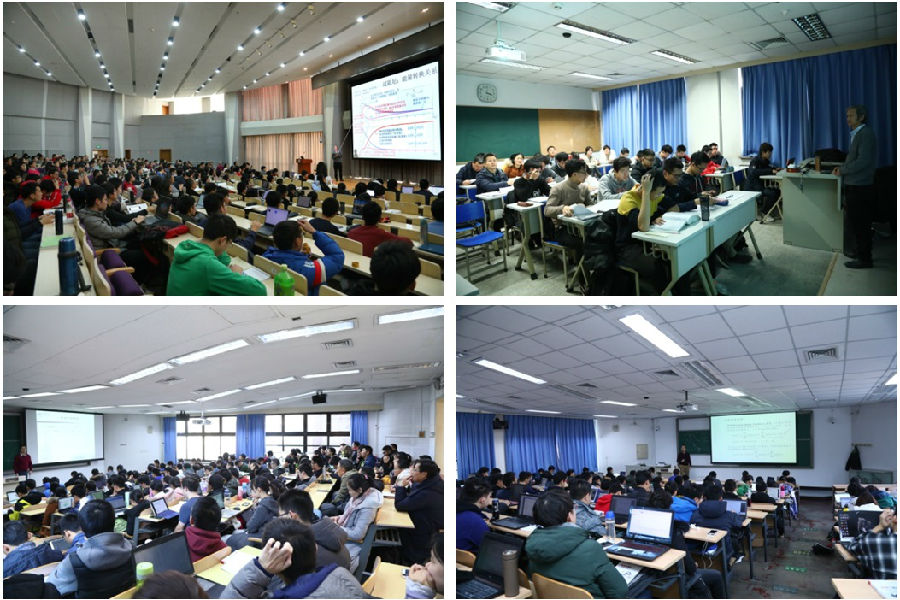
On the afternoon of the 10th, the participating teachers conducted in-depth discussions with Li Guolin, Chen Jiansheng, and Li Maokun. Based on their teaching practices of courses of circuits and algorithms in their respective colleges and universities, they exchanged ideas, shared experience, eliminated confusion, and jointly improved the teaching level. The teachers came with questions. Combined with the training experience and thinking, they expressed their views and the atmosphere on site was very warm.

During the training period, Tsinghua University Press organized an electronic information book exhibition, and InspiReal (Tianjin) Electronic Technology Co., Ltd. organized an experimental teaching instrument exhibition, providing participating teachers with abundant teaching resources and high-quality teaching services.

So far, the training class ended successfully. The training class has been unanimously recognized by the participating teachers who spoke highly of the wonderful reports, high-quality courses, and outstanding teachers and said one after another that they have benefited a lot, broadened their horizons, enhanced their understanding, and clarified their direction, and they looked forward to participating in follow-up and more in-depth training to learn advanced educational concepts, and follow up a new curriculum system.
The successful holding of the training class benefits from the ten years of profound accumulation and the teachers' dedication of the Department of Electronic Engineering, Tsinghua University, and also benefits from the meticulous organization and careful arrangements of Tsinghua University Press. The Department of Electronic Engineering, Tsinghua University and Tsinghua University Press will continue to cooperate closely to promote more and more wonderful activities.